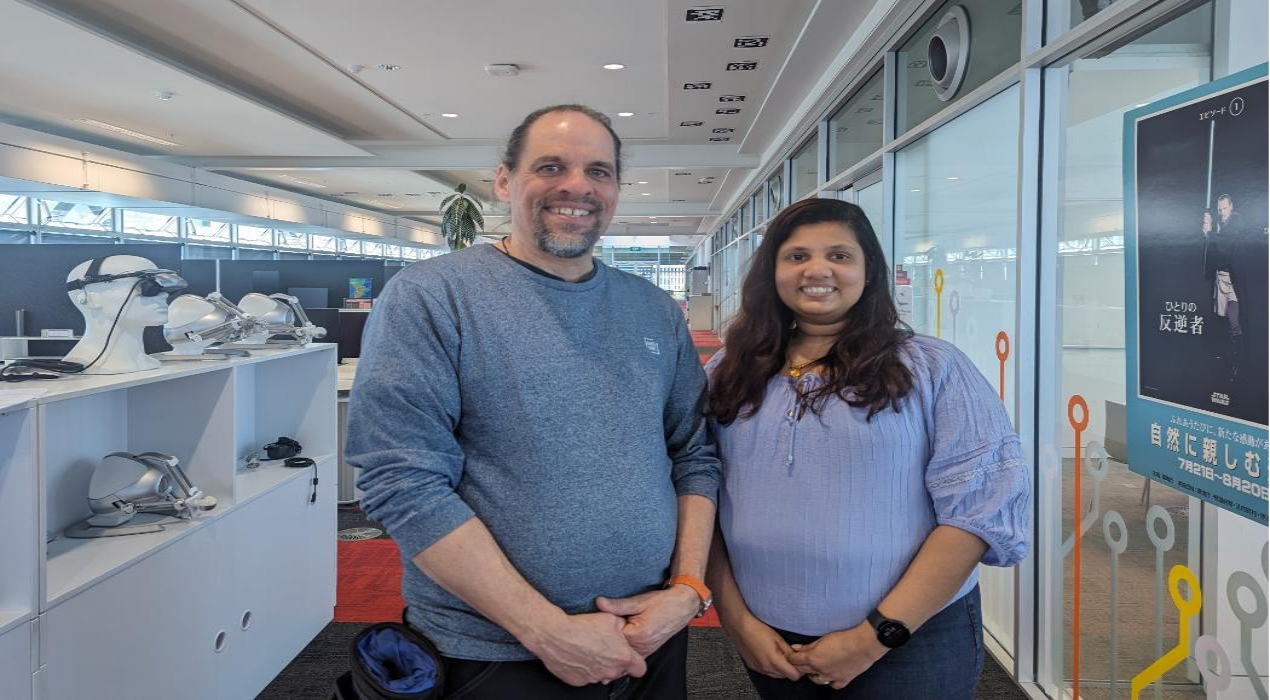
|
Getting your Trinity Audio player ready...
|
In a recent study, a team of researchers embarked on a journey to explore the potential of Virtual Reality (VR) headsets in medical consultations. This multidisciplinary team comprised several key members, including the PhD student Dilshani Kumarapeli, a Postdoctoral Fellow Dr Sungchul Jung, Research Associate Dr Yuanjie Wu, and their leader, Professor Rob Lindeman, who serves as the Director of the Human Interface Technology (HIT) Lab at Te Whare Wānanga o Waitaha | University of Canterbury (UC). Their collective mission was to push the boundaries of how VR technology could be harnessed in healthcare, particularly in scenarios where access or risk factors might hinder traditional face-to-face interactions between doctors and patients.
On their research endeavours lay in developing a personalised VR experience, aptly called an asymmetric system. This novel concept represented a departure from the conventional applications of VR technology, such as video games. Unlike these familiar scenarios where users typically engage with identical systems and receive uniform information, the researchers aimed to create a personalised VR environment for each individual involved in the medical consultation process. This approach set their work apart, underlining its innovative spirit and the potential to revolutionise the healthcare landscape.
The research team believes that the bespoke VR system could enhance the doctor-patient connection, even when physical proximity is not possible. By tailoring the sensory experience to cater to individual needs, this system could be particularly beneficial for patients residing in remote areas, those with highly contagious diseases, or individuals with mental health conditions that might pose a risk of violence toward others.
Professor Lindeman emphasises the importance of trust in the clinician-patient relationship, and the VR system is meticulously designed to facilitate this trust-building process. It achieves this by focusing on relaying essential non-verbal cues like eye contact and facial expressions, fostering a sense of connection between patients and doctors despite the geographical separation. Simultaneously, the system provides clinicians with valuable physiological data that patients may have difficulty conveying verbally during remote assessments.
The data collected by the VR headset includes eye-tracking information, facial expressions, and pulse and breathing rate data. This data is then processed and interpreted by a connected software programme, empowering the clinician to make more accurate diagnoses and treatment decisions.
While the research team’s initial trials of the VR system involved UC students, their visionary approach to asymmetric VR technology suggests that its potential applications extend far beyond the confines of these experiments. They foresee its utility in many scenarios, with educational contexts being just one example. As technology progresses and is refined, the team is wholeheartedly dedicated to advancing the system for real-world implementation, recognising the transformative impact it could have on various sectors.
One of the achievements of this research was the development of emotion recognition software. Overcoming the challenge of capturing nuanced facial expressions while participants wore VR headsets required innovative solutions. To address this, the team employed a facial capture device and trained a neural network to discern and interpret critical emotions.
This technological breakthrough enabled the transmission of these emotions to the clinician, enhancing the effectiveness of diagnosis sessions. Kumarapeli reflected on this journey as an enriching experience, underscoring its profound implications for the future of healthcare and beyond.
















